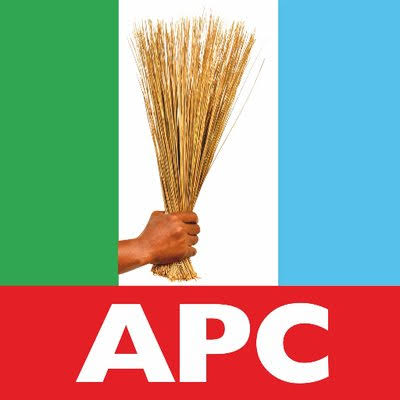By Adebisi Ifamakinde
I was surfing the internet recently when I came across a finding that touched on the significant slump in the membership of the main opposition in Osun state, the All Progressives Congress (APC). The finding, which was the culmination a survey conducted by the Democracy Polling Agency (DPA), a non-governmental organization affiliated to a top university in Nigeria, indicating that the Osun APC has lost at least 45 percent of members in recent time.
That is staggering, and out of curiosity, I look deeper to understand the finding more. The interesting thing in the finding was that the 45 percent membership slump attributed to the Osun APC was actually from the Ileri-Oluwa tendency of the party. For any observer of things in the Osun APC in recent time will understand that the party is sectionalized along the Omuluabi and Ileri-Oluwa tendency.
While Ogbeni Rauf Aregbesola, a former Governor in Osun state, leads the Omoluabi tendency of the Osun APC, the Ileri-Oluwa faction goes to the current Minister of Marine and Blue Economy, Alhaji Gboyega Oyetola. In the finding by the DPA, the Omoluabi tendency has about 45 percent of the old APC members in Osun, while the Ileri-Oluwa faction controls less than the remaining 60 percent.
It was from this 60 percent membership hold by the Ileri-Oluwa tendency, the DPA noted in its finding, that no fewer than 45 percent members had left. From the surface, this will seem impossible, but following events in recent times, provide more clarity on the finding by the DPA. Lately, APC members in Osun are leaving in droves to the ruling party, the Peoples Democratic Party (PDP) and the defection has become so rampant that one may easily lost count.
Starting from August to this moment, APC members across the state have moved to the PDP. From Ikire to Iwo, Gbongan to Ila, Ife to Osogbo, Ede to Modakeke, APC members in Osun seemingly no longer find the platform appealing to further their political participation as they pitch tent elsewhere, most especially the PDP.
According to the DPA survey, the APC has seen defection of members in 27 local governments in the state within the spate of three months. But a deeper look, scouring the pages of social media for news and pictures of defection, will show that the defection from the APC may have crossed all the 30 local governments, including the area office. That is huge and as inquisitive mind, I try to interrogate the development further.
Of a truth, politicians moving to the ruling party in our political environment is not usual, but the rate at which those of the APC extraction no longer find their platform attractive is intriguing. This much was highlighted by the DPA in its finding, attributing the development to the “impressive performance of the Osun Governor (Adeleke), the rigidity of the state APC leadership to reconciliation moves, the slow response of Mr Oyetola to discontinue his guber bid, the worsening economic climate and series disasters that had befell the party leadership in some local governments.”
No doubt that Governor Adeleke has done well in the two years he has been in the saddle, effectively delivering for the people across sectors. The disposition of the Osun APC leadership to reconciliation appears to weigh heavily on the reason why the platform is being deserted by members across board. It would be recalled that crisis, which created the Omoluabi tendency in the build up to the 2022 governorship election, played some role in its eventual ouster from power in the state.
Between then and now, the crisis had grown bigger and makes APC platform a lot weaker, significantly impacting its chance of challenging a formidable platform as the Osun PDP. To make matter worse, the Osun APC under the guidance of Oyetola, suspended Aregbesola from the party and recommended further disciplinary action to its national headquarters, finally blocking the path to any possible reconciliation.
Many observers believe the attitude of the APC doesn’t inspire hope of any chance in future elections, basically because the platform is not strong enough to stand a chance in any competitive election. While it is true that some PDP members, notably Dotun Babayemi, joined the APC, they have not been able to produce the numbers that could make up for the defection from the main opposition party. In fact, some of the members who followed Babayemi to the APC, like a former Iwo LGEA Secretary, Mr. Augustine, had since returned to the PDP with followers.
The balance is definitely scaled against the Osun APC and only a large scale manipulation of the electoral process could tilt the balance to it favour. Already, APC members have continued to boast in this line, touting interference of the election in the 2026 governorship by the Bola Tinubu-led federal government as its path to return to power. This will be a dangerous scheme as it may bring back the ugly memory of the 2018 election heist, which makes a larger number of Osun populace not to recognise Oyetola as their leader until his eventual ouster.
Away from this, is the observed challenge that the DPA’s finding reveal lies ahead for the PDP in Osun state. According to the organisation, the Osun PDP will be seriously tested by its ability to manage the influx of membership coming its way. “While PDP membership has increased by more than 50 percent in 2024 alone, there is a noticeable rift between old and new members,” the DPA noted.
Knowing politics and the recurring feature for struggle for space, it is very clear that as much as the defections to the Osun PDP should be an advantage, but it may turnaround to be a disadvantage. What happens rest on the party’s leadership handling of membership, ensuring that both old and new members can cohabit together and pursue the collective goals of the party.
In all, the DPA’s appraisal of political parties in Osun is a step in the right direction, as it not only provides a detailed understanding of the political environment in the state, but also help political parties to realise their standings and guide actions.This is a welcome development and more of such fact-base engagement from organisations with no political affiliations are needed to further deepen democracy, most especially in Osun state.
● Adebisi Ifamakinde writes from Gidigbo quarters in Iwo, Osun state





